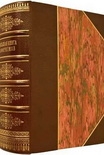Gluck by Diana Souhami (most interesting books to read .TXT) 📗

- Author: Diana Souhami
Book online «Gluck by Diana Souhami (most interesting books to read .TXT) 📗». Author Diana Souhami
Sir Samuel was short-tempered with her, called her Hannah, and treated her like a difficult child. He wrote with a truth untempered by tact to her mother (8 January 1942) ‘she must be made to understand that she cannot carry the burden of three establishments plus storage, contrary to the advice of her Trustees, and expect that she is going to be free from anxiety.’ Her brother tried to avoid replying directly to her about her affairs, and when forced to do so, was curt and to the point. He warned that ‘a final breach between us must follow’ unless she changed her tack. ‘The word “final” astonishes me,’ she replied (20 May 1942), ‘as I did not know any breach existed. In any case I cannot see why a breach should occur as a result of letters asking reasonable questions upon Trust matters that affect my income.’ All three of her Trustees thought she was being impossible and wasting their time in the middle of a world war. Her mother tried to be placatory, generous and helpful, but irritation kept creeping in. Her brother was totally out of temper with her and her cousin, dismissive. ‘I am really very sorry for you and Louis,’ he wrote to the Meteor (16 December 1941).
The whole atmosphere became electric with bad feeling. Gluck, while purporting to want only the facts and autonomy over her own affairs, wrote of mishandling of affairs, unfriendly and unconstructive letters and of attitudes that were ‘inimical and trampling’. ‘If,’ she wrote to her brother (13 December 1941),
your interpretation of your functions of a Trustee and as representing the other Trustees, is to continue to obstruct every request I make, to instruct your agents to do likewise and to adopt a carping attitude towards me, such as assuming knowledge of my lack of participation in the war effort when you know nothing about my life, then I can only say that I find living under such conditions intolerable, and will consider myself free to act in the future in accordance with the situation you will have forced on me.
Her mother kept asking her to meet and talk things over amicably rather than to write endless pernickety letters. Gluck had employed a secretary, a Mr Stanley – another expense – to deal with the voluminous correspondence she generated. When Gluck, her mother and her brother did meet to talk about Bolton House, at the Trocadero on 6 August 1941, they rowed horribly. Referring to the meeting four months later, Gluck wrote to her mother (9 December 1941): ‘This talk was of a nature so disgusting and shocking to me that it became clear that I cannot discuss any matters connected with my Trust affairs without a witness and a shorthand writer being present.’
The more she ignored the Trustees’ recommendations which were sharp, but not punitive – such as that she should store her furniture in the studio gallery to save paying rates on the house – and went her own way, the more implacable and unsympathetic they became. The more obsessive and demanding her letter writing, the more she was stonewalled. By 1942 communication had reached such an impasse that it was difficult to see how any of it could be put right. The sub-text was far too complicated. She could not have said that she wanted to keep Bolton House studio uncluttered because it was her special space, or that love had gone wrong and left her feeling lonely, powerless and dependent, or that it galled her not to be treated like a man, when she was by no means a typical woman, or that she did not know where quite to call her home. She tried to present herself to the Trustees as a force to be reckoned with, high on principle, a hard negotiator, an homme d’affaires, the master of her fate and the captain of her soul. The wrangle happened at a time when she was suffering acutely from disappointed love. It soured her feelings about Bolton House and she was never to return there.
I cannot be expected to take an interest in the property when I am refused information with regard to its upkeep and my liabilities in connection with it.… were Father alive today, which unfortunately he is not, he would have been the first to welcome my interest in the subject and my desire to get it straight.1
Worries about love exacerbated Gluck’s combativeness. After five years of so-called marriage, in 1941, she was chronicling in her diaries Nesta’s daily news as if it were her own. Nesta’s visits to Brighton, sore throats, colds, headaches and lumbago, her badminton games with Seymour, the day she lost her dog Mr Chips in Brighton, lunches with her mother, dinner guests, broadcasts, poetry readings and charity commitments were noted down as if indivisible from Gluck’s own activities and concerns. And as time went on she took to recording, with obsessive precision, the hours they did or did not spend together. Nesta was travelling the country talking at Women’s Institute and Red Cross meetings on Anglo-American relations. ‘Wings for Victory’ was one of her talks. She saw less of Gluck whose diary entries became a litany of pain: ‘Do not see N. all day.’ ‘N. comes to see me 4.20 to 5.30.’ ‘N. dashes in for a second on way to Lewes.’ ‘No letter from N. Very unhappy about it all.’ ‘N. comes from 11.30–12.30. Lay in hut and read Chinese





Comments (0)